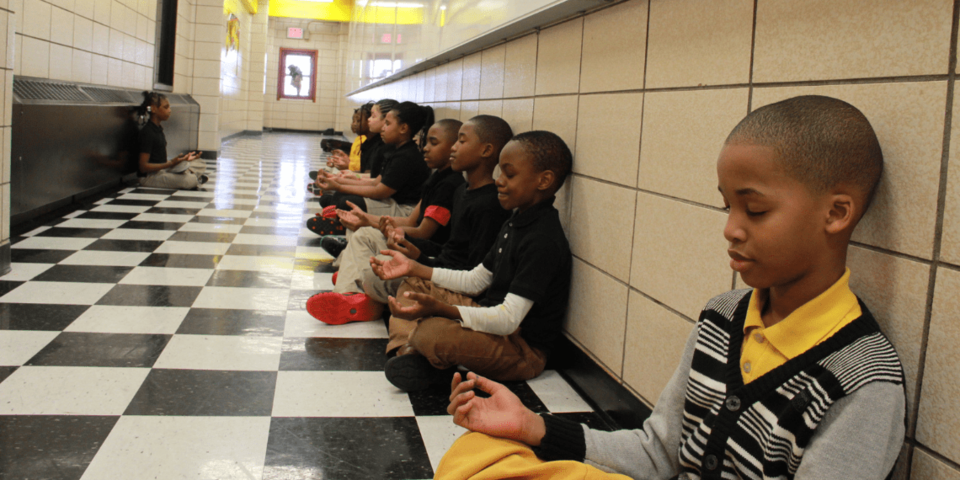The founder of a Bed-Stuy charter school that puts the mental health of its students at its core has won a grant from the owners of the Brooklyn Nets.
Rafiq Kalam Id-Din II, who prefers to be known as Brother Rafiq, is one of the first five recipients of money from the $50 million that Brooklyn Nets and Barclays Center owners Clara Wu Tsai and Joe Tsai have pledged to Brooklyn over the next 10 years.
The five grants range between $20,000-50,000 and are designed to address systemic racism and economic inequality in Brooklyn by supporting Black leaders.
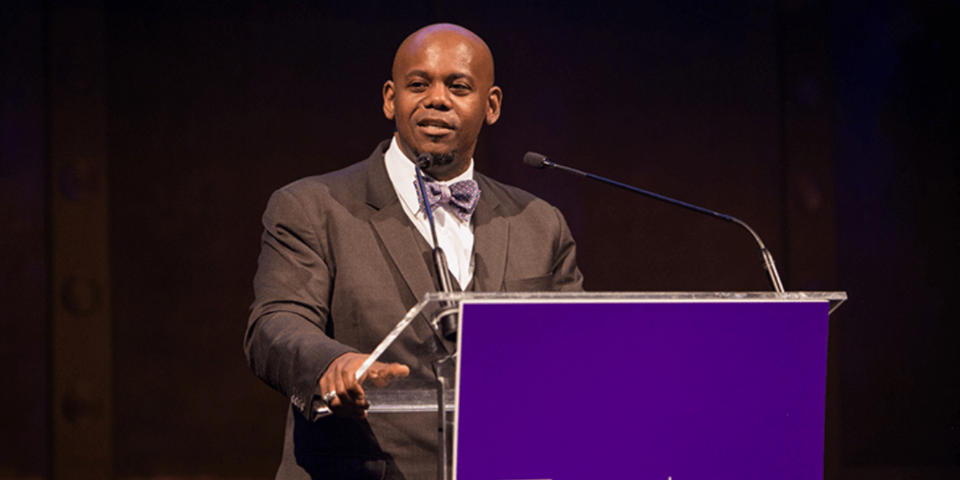
Brother Rafiq started Bed-Stuy's Ember Charter Schools in 2011. The school's focus is on empowering Black and Brown children ensnared in generational poverty, through a holistic education model. "Our work is directly anti-racist work, " he said.
Ember's students are predominantly Black and Latinx, and in almost 10 years of operation they're greatly outperforming state and city averages in English language and arts and maths achievement.
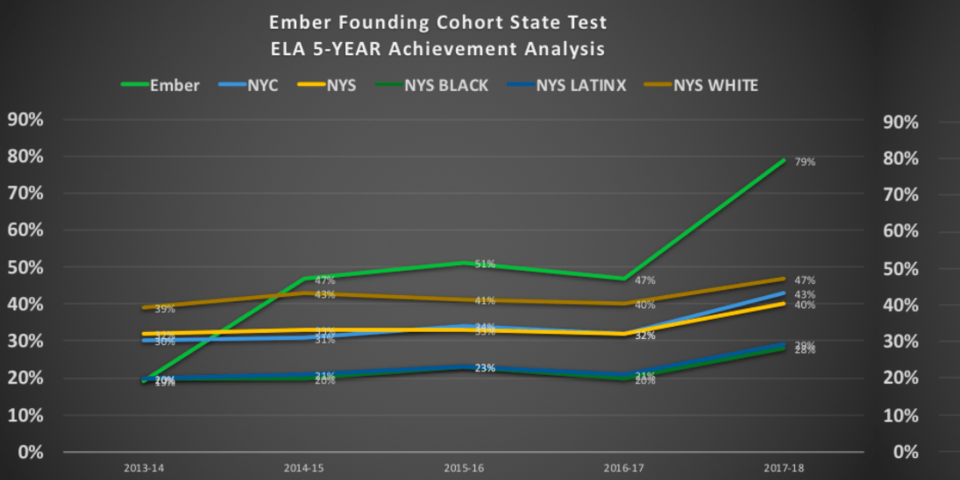
Even so, when Brother Rafiq got the call that he'd won the grant, he said he was completely surprised. He hadn't even applied for it. "You could have knocked me over with a feather."
But someone -- he's still unsure who -- had recognized his innovation in education and racial justice.
Tools for life
In early 2019, Ember Charter Schools was featured in a New York Times report about Black New York City families choosing to send their kids to schools explicitly designed for Black children, rather than keeping on pushing for integration in one of the most segregated school systems in the country.
It described a classroom where children chanted together, "I love myself! I love my hair, I love my skin!," and where posters of Colin Kaepernick and Harriet Tubman were pasted on the walls.
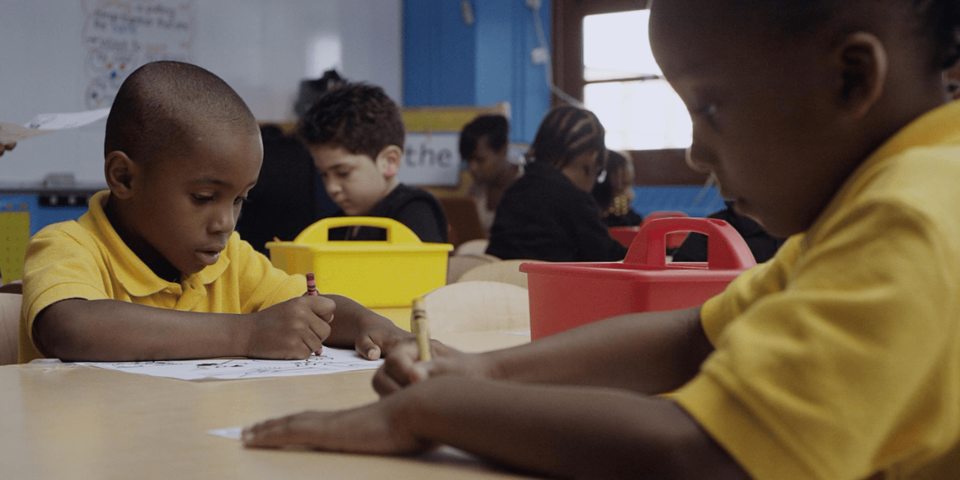
Talking to BK Reader, Brother Rafiq envisioned a future where there was a mental health practitioner in every classroom, co-teaching. Sixty percent of his students had been exposed to significant trauma, he said. Giving kids tools for life, not just wrote-learning for tests, was the goal.
"Our kids, they come to us deeply and tragically exposed to so much trauma," he said.
"So instead of saying they won't be able to do this and that, we say how can we make use of all the strength and tenacity you've developed in getting to this place, how can we get you to see that your ability to persist is a strength."
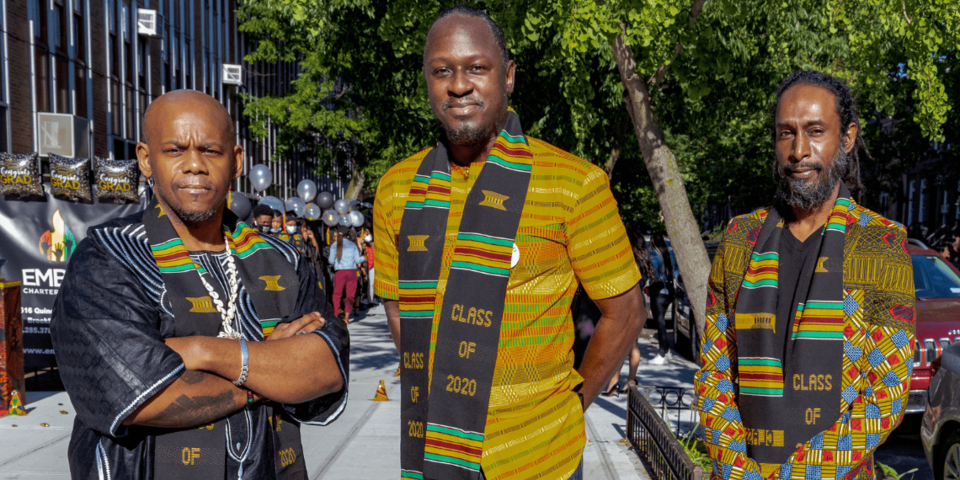
He himself grew up in poverty in North Philadelphia and experienced racism in the public school system as a child. He got a law degree, and worked for a time in acquisitions and mergers before moving to Bed-Stuy to start Ember and provide a different experience for Black and Brown kids.
Today, the racism he experienced persists in our elite New York City schools, he said.
Brother Rafiq recalls a student who graduated from Ember to go to an elite high school in the 2019/20 school year. In that student's first week, he was handcuffed and walked out of school in front of his mom because a white parent had emailed the school saying he was talking about having a gun.
It turned out the student had been a peripheral member of a conversation involving a water gun.
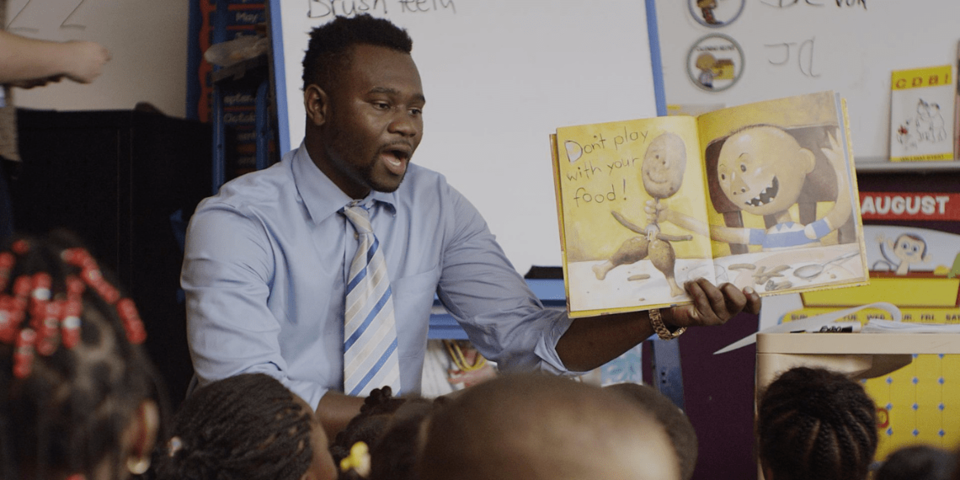
"I had his mom calling me in tears, this was one of my top students. This young man is brilliant. And this is the kind of racist treatment our kids get all the time."
In August 2020, Ember was finally able to open a high school years in the making. There are now 540 seats offered at the school from grade K to 10, plus the high school. Entrance is by lottery, due to demand. The school is public, so it's completely free on admission.
And the teen who experienced racism at the elite high school? He's back at Ember.
Unequal funding
Since starting the school in 2011, Brother Rafiq said the organization has not got equitable funding with white-led peers in its sector.
He got the kickstart he needed for the schools in 2008 when he received the prestigious Echoing Green Fellowship for Social Entrepreneurs for his "Teaching Firm", an innovative model for fully teacher-led schools managed like law firms. Michelle Obama is also a fellow.
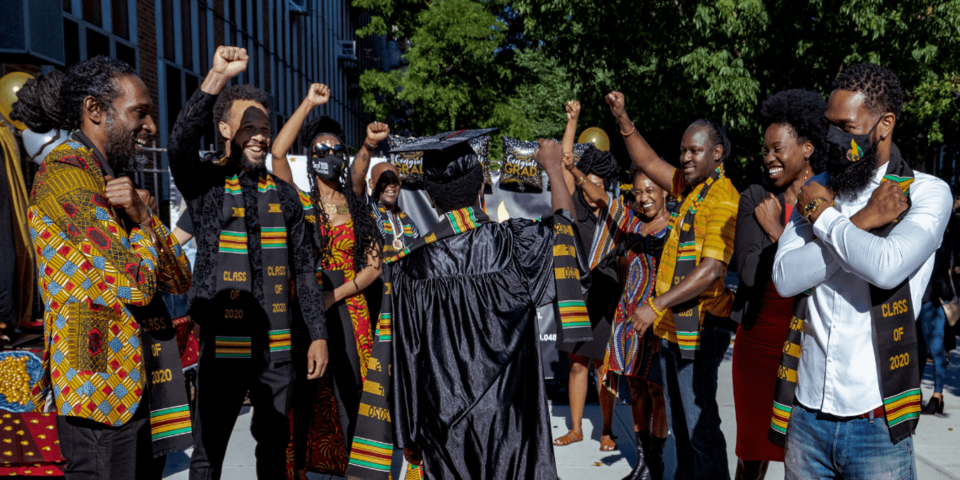
Since then, Ember has not recieved any significant foundational support, which is why the grant from the Tsais is so exciting, Brother Rafiq said. "It's a large foundation saying, 'We trust you to be the solution for your community."
He looked forward to working further with the Tsais, and with other recipients of the grant to disrupt racism into the future.
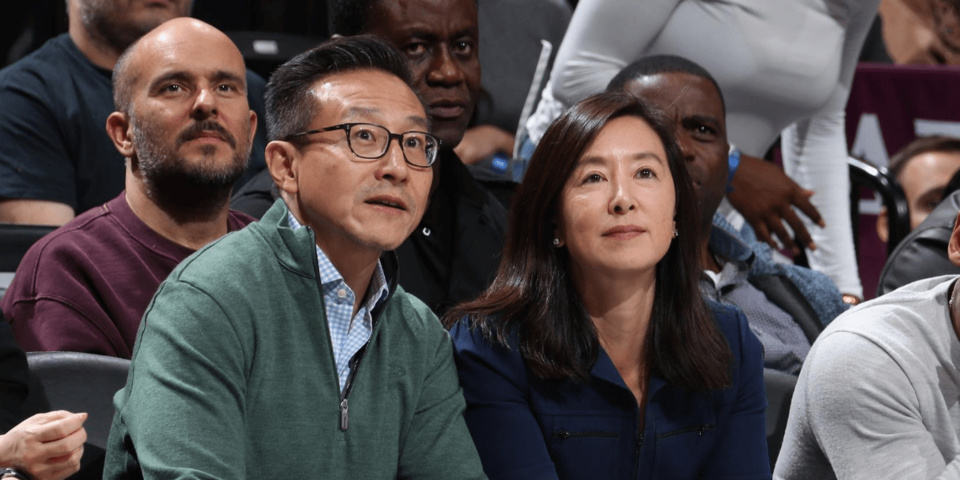
"There's been a huge investment to get us a treatment and vaccine for COVID-19, but not for racism. Our work is to develop intellectual, social and emotional vaccines for racism and poverty," he said.
"We are hopeful the Tsai Foundation will help people see us, and when they see us, be willing to trust us."
The other recipients of the first funding round are: Dr. Uché Blackstock, an ER doctor and the founder and CEO of Advancing Health Equity, which partners with healthcare organizations to combat bias and structural racism in the healthcare system; Dr. Ayana Elizabeth Johnson, the founder of environmental research hub Urban Ocean Lab and the author of the Blue New Deal, a road map adopted by Elizabeth Warren for including the ocean in climate policy; Michael "Zaki" Smith, an activist and policy expert who works to dismantle the barriers in employment, education and housing that prevent formerly incarcerated; and Senior Correspondent and VP of Digital Content for TheGrio Natasha S. Alford, who is committed to amplifying the untold stories impacting Black America.

